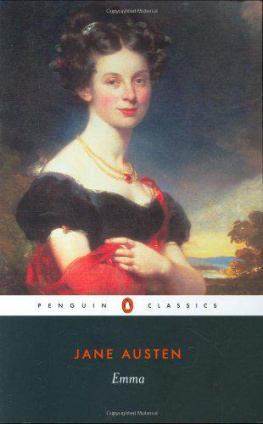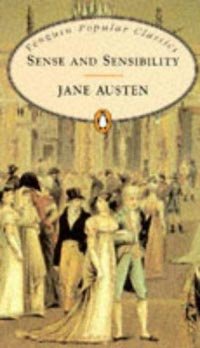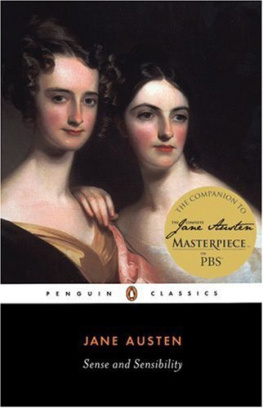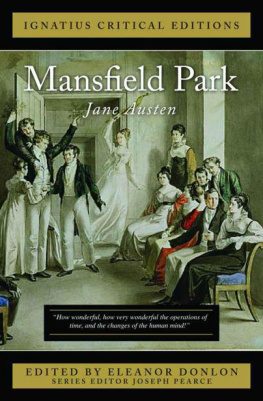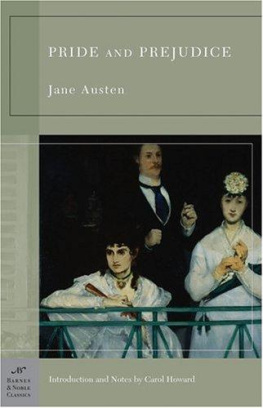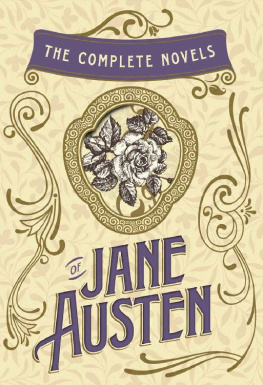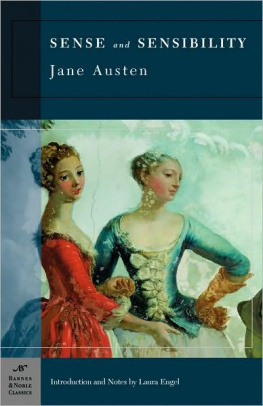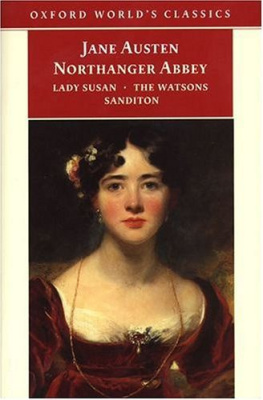
Table of Contents
From the Pages of Emma

Emma Woodhouse, handsome, clever, and rich, with a comfortable home and happy disposition, seemed to unite some of the best blessings of existence; and had lived nearly twenty-one years in the world with very little to distress or vex her.
(page 3)
Matrimony, as the origin of change, was always disagreeable.
(page 5)
Success supposes endeavour.
(page 9)
The attentions of a certain person can hardly be among the tittle-tattle of Highbury yet. Hitherto I fancy you and I are the only people to whom his looks and manners have explained themselves.
(page 48)
One half of the world cannot understand the pleasures of the other.
(page 73)
I shall not be a poor old maid; and it is poverty only which makes celibacy contemptible to a generous public!
(page 76)
There are people, who the more you do for them, the less they will do for themselves.
(page 82)
The truth is, that in London it is always a sickly season. Nobody is healthy in London, nobody can be.
(page 92)
It was a delightful visit;perfect, in being much too short.
(page 97)
There is, I believe, in many men, especially single men, such an inclinationsuch a passion for dining out; a dinner engagement is so high in the class of their pleasures, their employments, their dignities, almost their duties, that any thing gives way to itand this must be the case with Mr. Elton: a most valuable, amiable, pleasing young man undoubtedly, and very much in love with Harriet; but still he cannot refuse an invitation, he must dine out wherever he is asked.
(page 99)
Human nature is so well disposed towards those who are in interesting situations, that a young person, who either marries or dies, is sure of being kindly spoken of.
(page 164)
I cannot separate Miss Fairfax and her complexion.
(page 181)
Perfect happiness, even in memory, is not common.
(page 208)
Business, you know, may bring money, but friendship hardly ever does.
(page 263)
If other children are at all like what I remember to have been myself, I should think five times the amount of what I have ever yet heard named as a salary on such occasions dearly earned.
(page 346)
Seldom, very seldom, does complete truth belong to any human disclosure; seldom can it happen that something is not a little disguised, or a little mistaken.
(page 391)
I always deserve the best treatment, because I never put up with any other.
(page 428)


Published by Barnes & Noble Books 122 Fifth Avenue
New York, NY 10011
www.barnesandnoble.com/classics
Begun in 1814, Emma was first published in 1816.
Introduction, Notes, and For Further Reading
Copyright 2004 by Steven Marcus.
Note on Jane Austen, The World of Jane Austen and Emma, Notes,
Inspired by Emma, Comments & Questions, and For Further Reading
Copyright 2004 by Barnes & Noble, Inc.
All rights reserved. No part of this publication may be reproduced or transmitted in any form or by any means, electronic or mechanical, including photocopy, recording, or any information storage and retrieval system, without the prior written permission of the publisher.
Barnes & Noble Classics and the Barnes & Noble Classics colophon are trademarks of Barnes & Noble, Inc.
Emma
ISBN-13: 978-1-59308-152-2 ISBN-10: 1-59308-152-9
eISBN : 978-1-411-43210-9
LC Control Number 2004102194
Produced and Published in conjunction with:
Fine Creative Media, Inc.
322 Eighth Avenue
New York, NY 10001
Michael J. Fine, President and Publisher
Printed in the United States of America
QM
7 9 10 8 6
Jane Austen

The English novelist Jane Austen was born on December 16, 1775, the seventh of eight children, in the Parsonage House of Steventon, Hampshire, where she spent her first twenty-five years. During her relatively brief lifetime Austen witnessed political unrest, revolution, war, and industrialization, yet these momentous events are not the central or explicit subjects of her finely focused novels. Rather, Austen wrote out of her immediate experience: the world of the country gentry and middle-class professional and business families. Janes father, the Reverend George Austen, was the well-read country rector of Steventon, and her mother, Cassandra (ne Leigh), was descended from a well-connected line of learned clergymen. By no means wealthy, the Austens nonetheless enjoyed a comfortable and socially respectable life.
Jane and her beloved elder (and only) sister, Cassandra, were schooled in Southampton and Reading for short periods, but most of their education took place at home. Private theatrical performances in the barn at Steventon complemented Janes studies of French, Italian, history, music, and eighteenth-century fiction. An avid reader from earliest childhood, she began writing at age twelve, no doubt encouraged by her highly literate and affectionate family. Indeed, family and writing were her great loves. Despite a momentary engagement in 1802, Jane Austen never married. Her first two extended narratives, Elinor and Marianne and First Impressions, were written while she was at Steventon but were never published in their original form.
Following her fathers retirement, Jane moved in 1801 with her parents and sister to Bath. That popular watering hole, removed from the country life Jane preferred, presented the observant young writer with a wealth of events and experiences that would later be put to good use in her novels. Austen moved to Southampton with her mother and sister after the death of her father in 1805. Several years later the three women settled in Chawton Cottage in Hampshire, where Austen resided until the end of her life. She welcomed her return to the countryside and, with it, there came a renewed artistic vigor that led to the revision of her early novels. Sense and Sensibility, a reworking of Elinor and Marianne, was published in 1811, followed by Pride and Prejudice, a reworking of First Impressions, two years later.
Austen completed three more novels (Mansfield Park, Emma, and Persuasion) in the Chawton sitting room. Productive and discreet, she was not widely known to be the author of her published work. All of her novels were published anonymously, including the posthumous appearance, thanks to her brother Henry, of Northanger Abbey and Persuasion.
The last years of Austens life were relatively quiet and comfortable. Her final, unfinished work, Sanditon, was put aside in the spring of 1817, when her health sharply declined and she was taken to Winchester for medical treatment of what appears to have been Addisons disease or a form of lymphoma. Jane Austen died there on July 18, 1817, and is buried in Winchester Cathedral.
The World of Jane Austen and Emma


